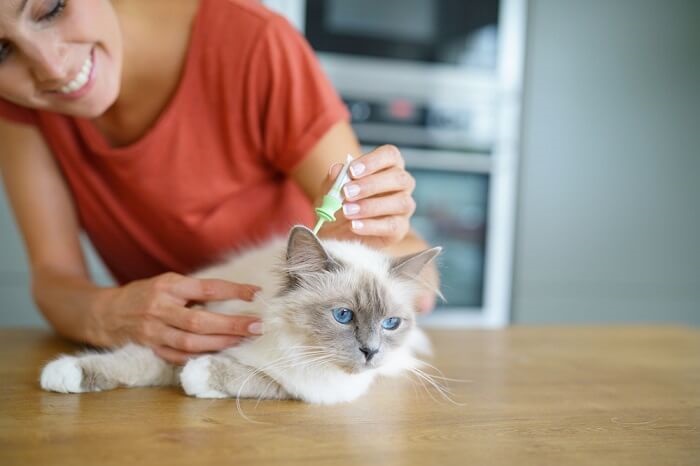The “cat flea” feels most comfortable on cats, but unfortunately, it is not choosy. If it gets too tight on “his” velvet paw, he satisfies his appetite with human blood. This usually only occurs when the infestation has already grown large. Once a colony of fleas has established itself in an apartment, the majority of them do not sit on cats or people, but on furniture and cracks in the floor. The animals jump from host to host and from the immediate vicinity onto the host. If dogs and cats are not around, they, like many other parasites. So it is good to give the best cat flea treatment possible when affected.
The greatest danger of infection lurks in the environment: a female flea can lay up to 1,000 eggs in six months. These fall from pets into baskets, beds or sofa crevices.
Treat cat fleas
If you notice a flea infestation on your cat, you should act and fight it quickly. Because the little pests multiply extremely quickly and become a torment for your cat. This means that on the one hand, you have to treat the cat against the annoying parasites. There are, for example, spot-on preparations or powders, the vet can also prescribe tablets. But that’s not all. Because your pet’s environment is still teeming with larvae and eggs. As mentioned above, these eventually simply fall to the ground and develop there again into blood-sucking fleas capable of reproduction. This means that the environment, i.e. the entire apartment, must also be treated with insecticides.
To do this, you should first clean everything thoroughly. All washable textiles should be washed at the highest possible temperature, ideally at 90°C. What cannot be washed – for example, a carpet – should be treated with a spray or fogger. When using foggers, it should be remembered that the mist of active ingredients is distributed throughout the room and falls onto the furnishings from above. The area underneath often remains untouched. You should also use a spray to treat under the sofa or table, for example. To effectively combat flea infestations, you need to treat your entire home. Otherwise, you risk the parasites multiplying again. Caution is advised if pregnant women or small children live on the premises to be treated. If you are unsure about a suitable therapy, please contact your veterinarian.
prevent cat fleas
You would of course prefer to spare yourself and your cat the time-consuming procedure described above, the itchy bites and the risk of communicable infectious diseases. Therefore, it is advisable to regularly protect yourself against a flea infestation with suitable means. For flea protection, for example, spot-on preparations for a simple application or various flea collars are available. Together with good household hygiene, you can effectively prevent flea infestation.

